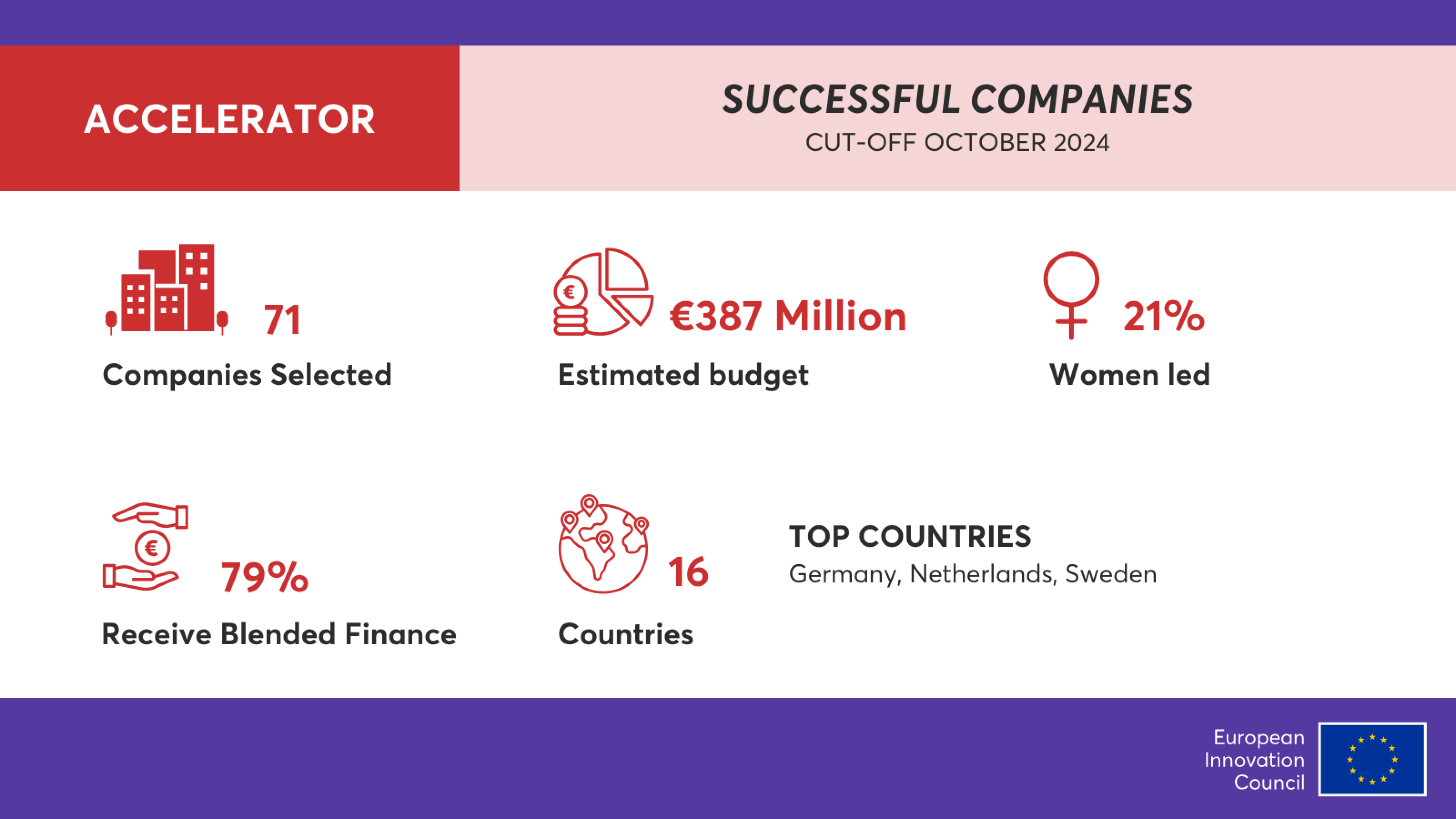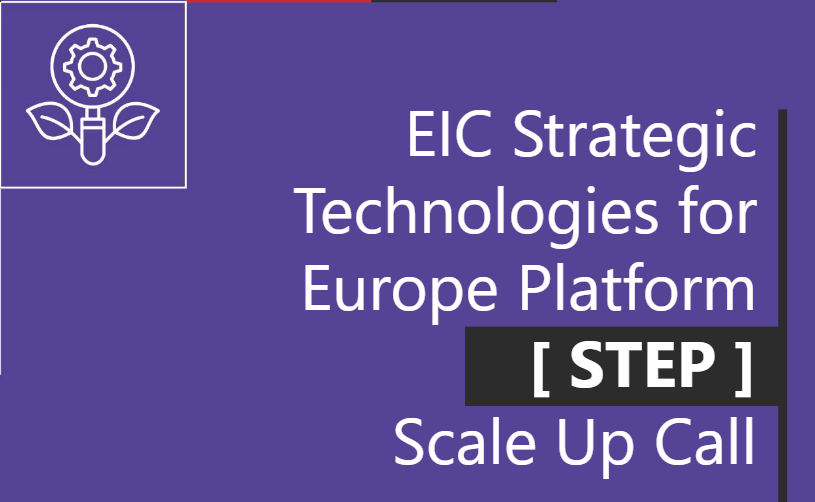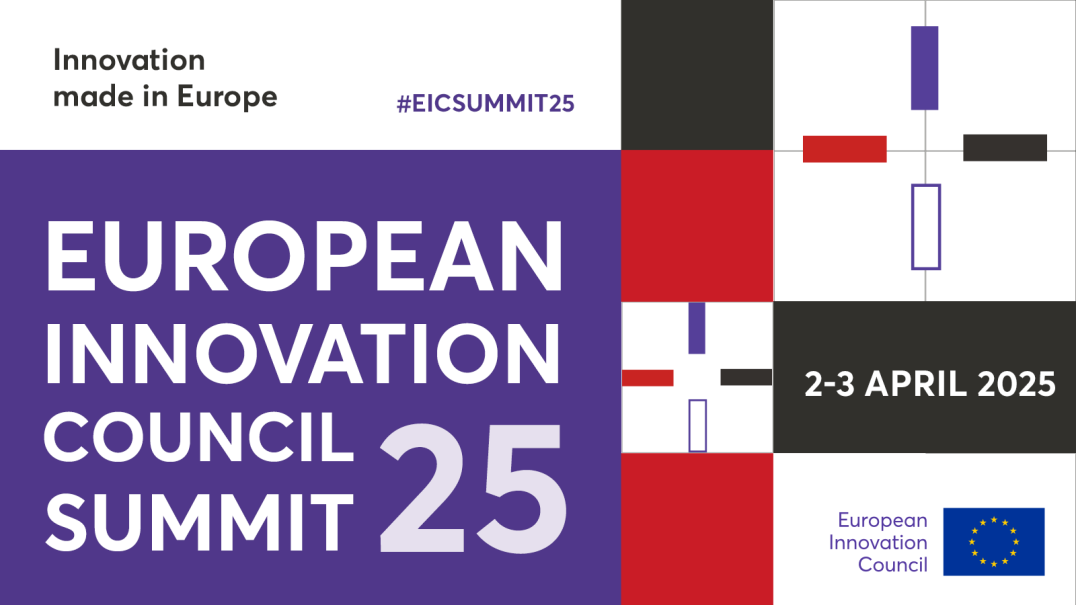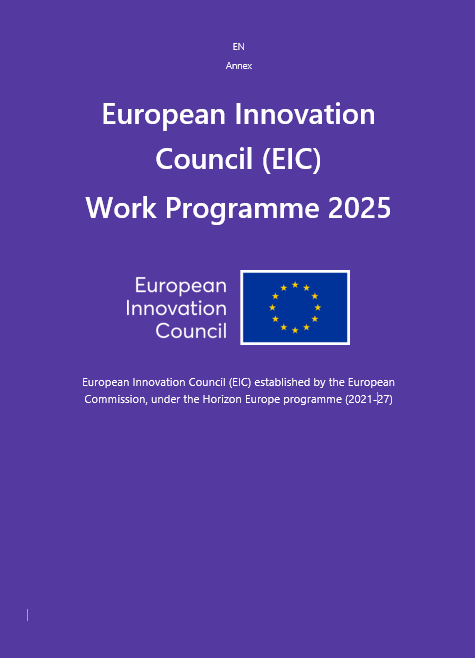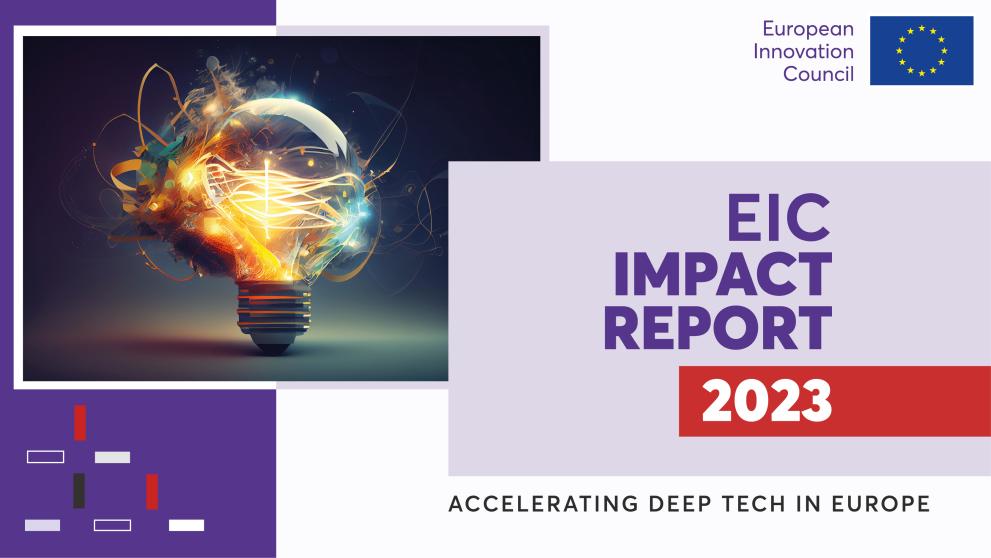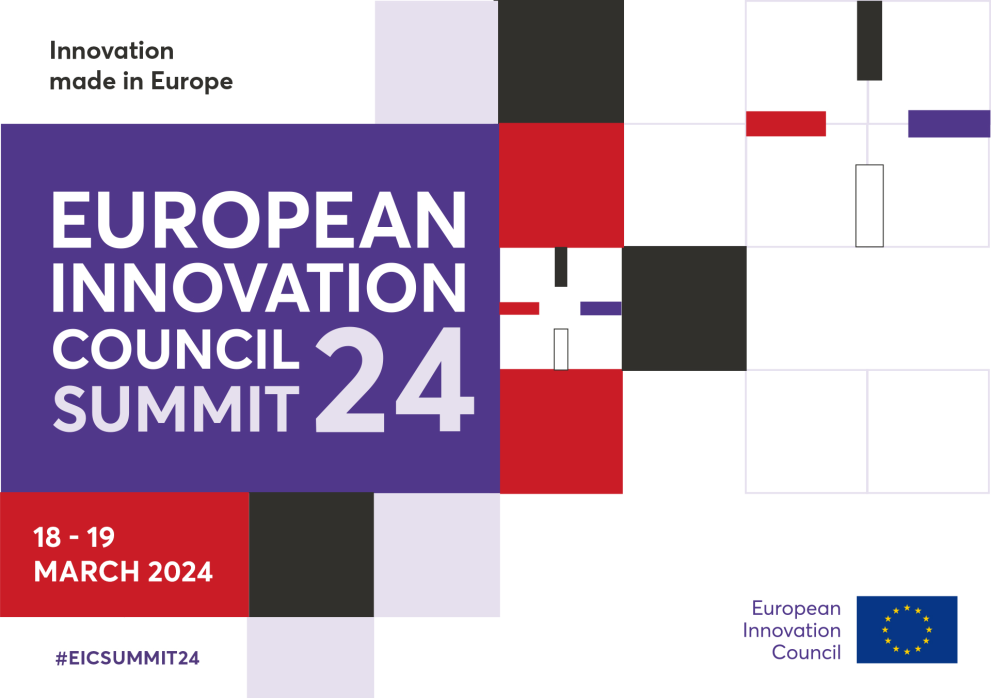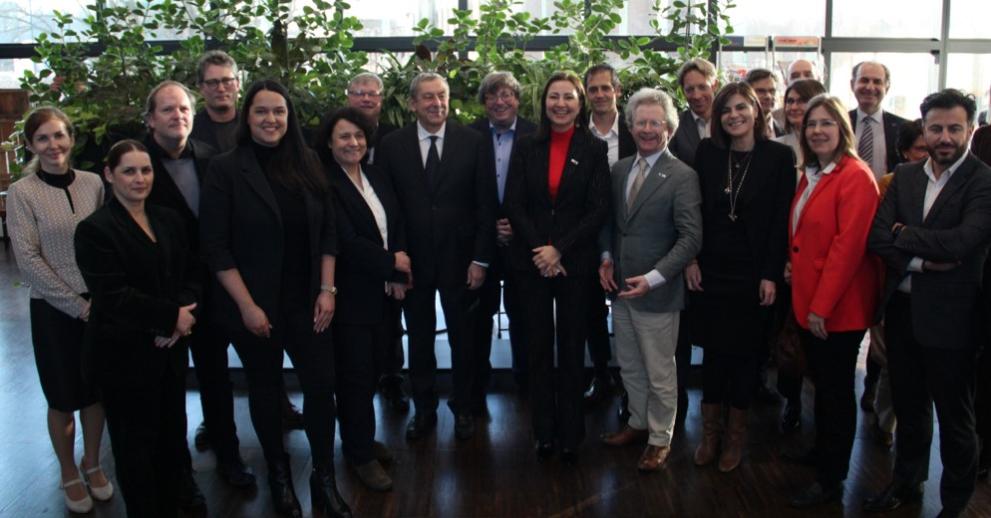2026 European Prize for Women Innovators Now Open
Empowering Europe’s Female Changemakers
In an era rapidly defined by technological breakthroughs and global challenges, it’s crucial to spotlight those driving real impact. The European Prize for Women Innovators, a collaborative initiative by the European Innovation Council (EIC) and the European Institute of Innovation and Technology (EIT), does exactly that—shining a spotlight on women founders and co-founders across Europe whose work is reshaping health, sustainability, digital economies, and more.
What is the Prize?
Originally launched in 2011 as the “European Woman Innovator of the Year,” this prize has evolved into a multi-category recognition by 2023, now awarding nine prizes annually. The categories include:
1. EIC Women Innovators – three main awards of €100 000, €70 000, and €50 000 for established women entrepreneurs.
2. EIC Rising Innovators – aimed at promising innovators under 35, with prizes of €50 000, €30 000, and €20 000.
3. EIT Women Leadership Award – recognizing exceptional leaders within the EIT ecosystem, also offering €50 000, €30 000, and €20 000.
Launched on 17th June 2025, the 2026 edition is now accepting submissions, with a deadline of 25th September 2025 at 17:00 CEST.
Who Can Apply?
To be eligible, applicants must be:
• A natural person identifying as a woman.
• The founder or co-founder of a company or organisation legally established in an EU Member State (including overseas territories) or Horizon Europe–associated country.
• Their company must have been registered at least two years prior to 1st January 2022.
• Women under 35 can apply to the Rising Innovators category; there’s no age limit to the other categories.
Applicants cannot apply to more than one category or have previously won an EU/Euratom prize for the same achievement.
Award Criteria
Evaluations are based on three pillars:
1. Breakthrough Innovation – evidence of deep-tech or STEM-based disruptive innovation.
2. Impact – tangible benefits for people or the planet.
3. Inspiration – leadership that uplifts other women and girls.
Why It Matters
Despite progress, women remain underrepresented in tech and innovation, a gap only widened by systemic barriers in funding and visibility. This prize tackles that head-on, offering substantial financial support, visibility, and a network of peer inspiration. With a top prize of €100 000, alongside runner-up prizes reaching up to €70 000, plus broad media exposure, awardees gain momentum that can supercharge both commercial success and societal impact.
Real-World Impact: Stories from 2025 Winners
Insight comes alive in the stories of last year’s awardees, including those profiled by Sifted and other innovation press:
Women Innovators Award – Agnès Arbat (Oxolife, Spain)
Agnès Arbat co-founded Oxolife to revolutionize fertility treatment. Their flagship drug, OXO 001, significantly improves embryo implantation, boosting live birth rates by about 7% (148 babies born during Phase II trials). Backed by EIT Health and other grants, they’re now advancing towards Phase II trials for PCOS patients in 2026. “All the funds…specifically regarding EIT Health…helped us design the Phase II trial,” says Arbat.
Her research directly addresses infertility, a key health challenge, and showcases women’s central role in biotech innovation.
Rising Innovators – Camille Bouget (Scienta Lab, France)
Under 35, Camille Bouget co-founded Scienta Lab, developing EVA, an AI platform predicting drug efficacy for immuno-inflammatory diseases. With €4.4 million raised, EVA evaluates treatments across 15 conditions, reducing risk early in drug development.
“We can help pave the way for a more inclusive innovation ecosystem…,” Bouget reflects.
She demonstrates how youthful insight, when paired with deep industry know-how, she came from Sanofi and Galápagos, can redefine healthcare innovation.
EIT Women Leadership – Débora Campos (AgroGrIN Tech, Portugal)
Débora Campos founded AgroGrIN Tech to convert industrial fruit waste into functional food ingredients. Following a PhD project, her business now pilots clean-label solutions for food manufacturers, merging sustainability with profitability. “That ecosystem helped us sharpen our business model… accelerate our go-to market strategy,” she says. Her win signals how circular economy innovation can scale, and how support from entities like EIT Food can be transformative.
Support Ecosystem & Evaluation Process
Eligible candidates choose one category and apply via the European Commission’s Funding & Tender portal, where detailed contest rules and submission guides are available.
Applications follow a strict structure:
• Form A (admin) and Form B (technical, max 15 pages)
• Supporting annexes
• A 90-second inspirational video.
A jury of independent experts selects winners based on the three award criteria, ensuring transparency and meritocracy.
How to Apply: Key Dates & Steps
• Launched: 17th June 2025
• Deadline: 25th September 2025 at 17:00 CEST
• Evaluation: September 2025–January 2026
• Awards Ceremony: January–March 2026
Why You Should Consider Applying
1. Boost to innovation – The prize money injects growth capital into R&D, scaling, or market entry.
2. Unmatched visibility – EU-level recognition, featured at events like the EIC Summit.
3. Peer learning – Join an elite community of women leaders.
4. Credibility – Builds trust with investors and strategic partners.
5. Inspiration multiplier – Awardees become role models for women and girls in STEM.
Broader Legacy & Future Outlook
Since its inception, this prize has recognised dozens of women across Europe and associated countries, for example, winners in 2022 included Rocío Arroyo (Spain), Ciara Clancy (Ireland), and others. These laureates now lead in sectors ranging from biotech to sustainable energy.
Today’s expansion, with more categories, bigger prizes, and open eligibility across EU and associated nations, demonstrates strong commitment to diversity in innovation. By 2026, the award infrastructure will include support webinars, mentorship opportunities, and more visible storytelling.
EC Launches Ambitious Strategy to Boost Startups and Scaleups
On 28th May 2025, the European Commission (EC) unveiled its ambitious EU Startup and Scaleup Strategy, aiming to position the European Union (EU) as the premier destination for technology-driven innovative companies. Central to this initiative is the expansion and simplification of the European Innovation Council (EIC), designed to provide enhanced funding opportunities for startups and scaleups, particularly in the deep tech sector.
Key Components of the Strategy
- Innovation-Friendly Regulation: The EC plans to simplify existing rules, reduce administrative burdens, and introduce regulatory sandboxes. These measures are intended to create a more conducive environment for startups and scaleups to innovate and grow.
- Enhanced Financial Support: The strategy includes the establishment of a Scaleup Europe Fund and efforts to mobilize institutional investors. These initiatives aim to bridge the financing gap for deep tech companies, facilitating their growth and competitiveness.
- Talent Development and Retention: Initiatives such as "Lab to Unicorn," "Blue Carpet," and the "EU Visa Strategy" are set to attract and retain top talent. These programs focus on nurturing innovative ideas from the lab stage to full-scale commercial success, ensuring that the EU remains a hub for cutting-edge innovation.
- Infrastructure Access: The EC will provide easier access to research and technology infrastructures. Additionally, the introduction of a Charter of Access for industrial users aims to support the rapid commercialisation of innovative solutions.
Monitoring and Evaluation
To assess the effectiveness of the strategy, the EC will monitor progress through key performance indicators. These include tracking the increase in the number of startups, scaleups, centaurs (companies valued over €100 million), and unicorns (companies valued over €1 billion) within the EU. A comprehensive report on the implementation and outcomes of the strategy is scheduled for release by the end of 2027.
Implications for the European Innovation Ecosystem
This comprehensive strategy highlights the EU's commitment to fostering a robust innovation ecosystem. By addressing regulatory, financial, talent, and infrastructural challenges, the EC aims to create an environment where startups and scaleups can thrive. The focus on deep tech and the expansion of the EIC are particularly noteworthy, as they signal a strategic move to position the EU at the forefront of technological advancement.
For entrepreneurs, investors, and stakeholders within the EU, this strategy presents new opportunities for growth, collaboration, and innovation. As the implementation unfolds, it will be crucial to engage with the various programs and initiatives to fully leverage the support mechanisms being introduced.
EIC Accelerator (Oct '24 Cut-Off) Results Announced
The European Innovation Council (EIC) Accelerator programmes provides up to €2.5m of grant funding and up to of €15m of equity to support innovative start-ups and small to medium-sized enterprises (SMEs) developing groundbreaking technologies and solutions which are at Technology Readiness Level 6 or above.
Overview of the February 2025 Funding Round
In the latest funding round (results announced in February 2025), the EIC Accelerator received a record-breaking 1,211 full applications from start-ups and SMEs for the 3rd October 2024, cut-off. Of these applications, 431 were invited to jury interviews, with 71 companies selected for funding. This selection translates to an overall success rate of approximately 5.9% from Step 2 to the final selection, highlighting the rigorous and competitive nature of the process.
The total funding allocated in this round amounts to €387 million, with an average of €5.45 million per company. The funding types awarded were as follows:
- Blended Finance (Grant + Equity): 56 companies (78.9%)
- Equity-Only: 5 companies (7.0%)
- Grant-Only: 10 companies (14.1%)
The significant emphasis on blended finance indicates the EIC's strategy to combine immediate financial support with long-term investment, ensuring sustained growth and scalability for the selected companies.
Geographical Distribution and UK Participation
The 71 selected companies represent a diverse geographical spread, spanning 16 countries. The top-performing countries in this round include Germany (15 companies), the Netherlands (11 companies), and Sweden (7 companies). Notably, the UK had 5 companies selected, accounting for 7% of the total.
This representation is particularly significant for UK-based entities. Despite the challenges posed by the UK's departure from the European Union, the EIC Accelerator remains accessible to UK applicants, albeit with certain limitations. UK companies are eligible to apply for the "grant-only" scheme, excluding them from equity-based funding components. This adjustment necessitates a strategic approach for UK applicants, focusing on maximizing the potential of grant funding to drive innovation and growth.
Success Rates and Application Process
The EIC Accelerator's selection process is highly competitive, with success rates reflecting the program's rigorous standards:
- Step 2 Success Rate: 36%
- Step 3 Success Rate: 16%
- Overall Success Rate (from Step 2 to Final Selection): 5.9%
These statistics indicate that while the journey from application to selection is challenging, a significant proportion of applicants who advance to Step 2 have a viable chance of securing funding. Understanding and navigating this process effectively is crucial to enhancing their prospects.
Why UK Entities Should Consider Applying
- Access to Substantial Funding: The EIC Accelerator offers grants of up to €2.5 million, providing substantial financial support to propel innovative projects. For UK companies, securing such funding can be transformative, enabling the development and scaling of cutting-edge solutions.
- Recognition and Credibility: Being selected by the EIC Accelerator not only provides financial backing but also serves as a mark of excellence and credibility. This recognition can open doors to additional funding opportunities, partnerships, and market expansion.
- Business Acceleration Services: Beyond funding, the EIC offers Business Acceleration Services, granting access to expertise, corporate partners, investors, and innovation ecosystems. These resources are invaluable for companies aiming to scale and penetrate new markets.
- Encouragement of Female Leadership: The EIC actively promotes diversity, with 21% of the selected companies in this round being led by women (as CEO, CSO, or CTO). UK companies with female leadership are particularly encouraged to apply, aligning with the EIC's commitment to fostering inclusive innovation.
Considerations for UK Applicants
While the "grant-only" limitation requires UK applicants to forgo equity funding, this constraint can be strategically navigated:
- Leveraging National Resources: UK companies can complement EIC grant funding with national programs and private investments. This blended approach can offset the absence of EIC equity funding, ensuring comprehensive financial support.
- Building Strong Consortia: Collaborating with entities from EU member states can enhance the project's value proposition and align it more closely with EIC priorities, potentially increasing the chances of success.
- Emphasizing EU Market Integration: Demonstrating a clear strategy for integrating and scaling within the EU market can make applications more compelling, showcasing the potential for broader European impact.
Strategic Areas of Focus
The EIC Accelerator is dedicated to supporting innovative startups and SMEs across a wide array of sectors. While the program is open to all fields of technology, it places a particular emphasis on strategic areas that align with broader EU policies and address pressing societal challenges:
Health and Biotechnology:
- Medical Technologies: Development of advanced medical devices, diagnostics, and therapeutic solutions.
- Biopharmaceuticals: Innovations in drug discovery, vaccine development, and personalised medicine.
- Biotechnology Applications: Projects focusing on bioproducts, biofuels, and bioremediation.
Energy and Environment:
- Renewable Energy Solutions: Technologies harnessing solar, wind, hydro, and other renewable sources.
- Energy Storage and Efficiency: Innovations in batteries, supercapacitors, and energy management systems.
- Environmental Protection: Projects aimed at pollution reduction, waste management, and circular economy initiatives.
Digital and Deep Tech:
- Artificial Intelligence (AI): Development of AI-driven applications across various industries.
- Quantum Computing: Advancements in quantum technologies for computing and communication.
- Cybersecurity: Innovations ensuring data protection and network security.
Advanced Materials and Manufacturing:
- Nanomaterials: Creation of materials with novel properties for industrial applications.
- Smart Manufacturing: Integration of IoT and automation in production processes.
- Construction Technologies: Innovations in building materials and sustainable construction practices.
Agriculture and Food:
- Sustainable Farming: Technologies promoting precision agriculture and resource-efficient farming.
- Food Biotechnology: Development of alternative proteins and food products with reduced environmental impact.
- Aquaculture: Innovations in sustainable fish farming and aquatic ecosystem management.
Space and Mobility:
- Satellite Technologies: Development of components and systems for space exploration and communication.
- Advanced Mobility Solutions: Innovations in electric vehicles, autonomous transportation, and smart logistics.
- Aerospace Engineering: Projects focusing on aircraft design, propulsion systems, and air traffic management.
The EIC STEP Scale-Up Programme
The Strategic Technologies for Europe Platform (STEP) Scale-Up Programme is a pivotal new initiative under the European Innovation Council (EIC), designed to provide large-scale equity investments for deep-tech startups. With an initial €300 million budget in 2025, expanding to €900 million by 2027, the programme targets strategic sectors including digital technologies, clean energy, and biotech. By bridging the funding gap for high-potential European companies, STEP aims to reduce Europe’s reliance on non-EU technology providers and strengthen the region’s innovation ecosystem.
Background
European deep-tech startups have long faced challenges in securing growth-stage funding, particularly when scaling up beyond early-stage venture capital. Many promising EU-based companies struggle to compete with their counterparts in the US and China, where access to private capital is significantly greater. Recognising this challenge, the European Commission (EC) introduced the STEP Scale-Up Programme to provide much-needed equity investments ranging from €10 million to €30 million per company.
The programme is not only about financing—it's about building European resilience in critical technology sectors such as semiconductors, AI, quantum computing, clean tech, and healthcare innovation.
Objectives of the STEP Programme
The primary goal of the STEP Scale-Up Programme is to enhance Europe's technological sovereignty by supporting companies working in strategic industries. The initiative has four key objectives:
- Scaling Up Deep-Tech Startups: The funding gap in the EU's venture capital landscape means that many startups struggle to grow beyond early development stages. STEP provides equity funding at a critical moment, allowing companies to expand their operations, scale production, and enter global markets.
- Reducing Reliance on Non-EU Technologies: Europe has become increasingly dependent on technology imports, particularly in areas like semiconductors, cloud computing, and clean energy technologies. The STEP programme seeks to reduce this dependency by supporting homegrown companies that can develop and manufacture these technologies within Europe.
- Attracting Private Investment: STEP requires companies to secure at least 20% of their funding from private investors, ensuring that public funds are used alongside market-driven capital. This co-investment approach helps attract venture capital firms, institutional investors, and corporate partners to Europe's innovation ecosystem.
- Strengthening Europe's Position in Global Innovation: By supporting European companies in strategic sectors, STEP aims to position the EU as a leader in emerging technologies rather than a consumer of foreign innovations.
Funding and Investment Mechanism
The STEP Scale-Up Programme operates as an equity-focused funding scheme within the EIC. Unlike traditional grant funding, STEP invests directly in companies through equity or quasi-equity instruments:
- Equity investments range from €10 million to €30 million per company.
- The total budget for 2025 is €300 million, with plans to expand to €900 million by 2027.
Co-Investment Requirement
To qualify for STEP funding, applicants must secure at least 20% of their funding round from a qualified private investor. This means that if a company seeks €20 million, it must first obtain €4 million from private investors before the EU steps in with additional equity support.
The STEP Seal
One unique feature of the programme is the STEP Seal, awarded to projects that pass the EIC’s rigorous evaluation process. Companies with the STEP Seal gain:
- Access to alternative funding sources (e.g., national innovation agencies and private investors).
- Business acceleration services to help scale internationally.
- Increased credibility with potential co-investors.
Who Can Apply?
Startups, SMEs, and Small Mid-Caps (up to 499 employees):
- Established within a Member State or an Associated Country.
- An investor may submit a proposal on behalf of an eligible SME or small mid-cap as defined above.
This scheme targets companies seeking major funding rounds, requiring proof of initial market interest from a qualified investor covering at least 20% of the total target funding round.
Sectors of Focus
- Digital technologies (AI, semiconductors, quantum computing, cybersecurity)
- Clean energy and sustainability solutions
- Advanced healthcare and biotech innovations
- Space technologies and robotics
For more detailed information on the sectors of focus, see the Guidance Note on STEP.
Application Process
The STEP Scale-Up Programme has an ongoing application process, with funding rounds every three months.
Step 1: Submission your proposal
- a full business plan, including information on the company’s ownership and financial structure, STEP related objectives (maximum 50 pages).
- a pitch-deck in PDF (15 pages maximum).
- a pre-commitment from a qualified investor.
- an ownership control declaration.
- If your application meets the eligibility requirements, you will be invited to attend a jury interview.
You will be informed about the interview in 4-6 weeks from the start of the evaluation process.
EIC Jury Interview
- At the interview, you will be assessed by a Jury of maximum six members.
- You will be informed about the result of the interview in 2 weeks from the date of the interview.
Companies, irrespective of whether they are retained for funding or not, that meet all evaluation criteria will be awarded the Sovereignty Seal and gain access to Business Acceleration Services.
Furthermore, if your proposal does not meet the criteria, you will receive feedback to help improve future applications.
For the full EIC STEP Up Call, please see the EIC work programme 2025 (pages 96-105).
You can access the full EIC STEP Scale Up Call Submission Guidance here.
EIC Summit 2025 - Save the Date
The European Innovation Council (EIC) is set to host its fourth annual summit on the 2nd and 3rd April 2025, at the historic Tour & Taxis venue in Brussels. This flagship event serves as a central hub for innovators, researchers, policymakers, and investors across Europe, fostering collaboration and showcasing groundbreaking advancements in technology and business.
Event Overview
The EIC Summit 2025 is structured over two days, each tailored to distinct audiences and objectives:
- Day 1: 2nd April 2025
- Focus: Exclusively dedicated to EIC beneficiaries.
- Activities: A series of workshops, pitching sessions, and networking opportunities designed to support and accelerate the growth of EIC-funded projects and companies.
- Day 2: 3rd April 2025
- Focus: Open to the public.
- Activities: Engaging discussions and fireside chats covering a broad spectrum of topics relevant to innovation, entrepreneurship, and technology policy.
Throughout both days, attendees will have ample opportunities to network and explore an exhibition featuring a diverse array of EIC-supported projects, providing insights into the latest innovations poised to impact various industries.
Significance of the EIC Summit
The EIC Summit has established itself as a pivotal event in Europe's innovation landscape. It brings together high-growth startups, small and medium-sized enterprises (SMEs), researchers, corporate leaders, and investors, creating a dynamic environment for knowledge exchange and partnership formation. The summit also serves as a platform for the EIC to announce new initiatives, funding opportunities, and policy directions that shape the future of European innovation.
What to Expect
Participants can look forward to:
- Workshops: Interactive sessions offering practical guidance on topics such as intellectual property rights, investment strategies, and scaling businesses.
- Pitching Sessions: Opportunities for startups and innovators to present their ideas to potential investors and partners, facilitating access to funding and collaborative ventures.
- Panel Discussions and Fireside Chats: Conversations with industry experts, policymakers, and successful entrepreneurs discussing current trends, challenges, and opportunities in the innovation ecosystem.
- Exhibition: A showcase of cutting-edge projects funded by the EIC, highlighting technological advancements across various sectors.
Networking Opportunities
The summit's design emphasises networking, providing structured and informal settings for attendees to connect. This environment encourages the formation of strategic partnerships, investment opportunities, and collaborative research endeavours, all crucial for driving innovation forward.
Venue: Tour & Taxis
Located in Brussels, Tour & Taxis is a historic site that has been repurposed into a modern event space, blending architectural heritage with contemporary facilities. Its central location and unique ambiance make it an ideal venue for hosting an event of this magnitude.
Stay Informed
As the event approaches, additional details, including registration information, agendas, and speaker announcements, will be made available. Interested parties are encouraged to stay updated by following the EIC on social media platforms such as X (formerly Twitter) and LinkedIn.
The EIC 2025 Work Programme
The European Innovation Council (EIC) unveiled its 2025 Work Programme, highlighting ambitious initiatives designed to solidify Europe’s position as a leader in breakthrough technologies and strengthen its strategic autonomy. By funding high-risk, high-reward innovations, the EIC aims to transform scientific discoveries into market-ready technologies, fostering an environment where innovative companies can thrive and compete globally. This article delves into the essential changes, major highlights, and anticipated impact of the EIC 2025 Work Programme.
1. The New STEP Scale-Up Scheme: Bridging the Funding Gap
One of the centrepieces of the EIC 2025 Work Programme is the newly introduced STEP Scale-Up Scheme. This €300 million initiative is a direct response to the well-documented challenges European deep-tech startups face in securing sufficient growth funding. While Europe has excelled in generating innovative ideas and producing early-stage start-ups, a lack of substantial follow-on funding has limited many companies’ abilities to scale globally.
The STEP Scale-Up Scheme is specifically tailored to address this gap, targeting high-impact companies developing critical technologies. These include digital innovations, clean tech, and biotech solutions - sectors deemed essential for Europe’s competitive and strategic positioning. The scheme will prioritise funding for projects that have a clear path to scale but need significant investment to reach that next level. By doing so, the EIC aims to prevent promising companies from seeking funding outside the EU, which often results in them relocating.
2. Enhanced Focus on Strategic EIC Challenges
The EIC has refined and expanded its EIC Challenges, allocating over €370 million to address pressing global and European priorities. EIC Challenges act as targeted calls for proposals within specific high-potential fields, encouraging innovators to tackle some of the world’s most complex problems. For 2025, the EIC has introduced new and strategically relevant challenges, each designed to push the boundaries of current knowledge and technological capability.
Key areas of focus include:
• Generative Artificial Intelligence (AI): As generative AI continues to disrupt industries, the EIC Challenge in this domain is set to accelerate the development of Europe-centred AI innovations. The goal is to build competitive AI applications that address Europe’s ethical, social, and economic needs, ultimately ensuring Europe’s sovereignty over AI technologies.
• Climate-Resilient Crops: Responding to the urgent need for sustainable agriculture in the face of climate change, this challenge calls for the development of crops that can withstand increasingly extreme weather patterns. Innovations in this space are expected to bolster food security and reduce dependency on external agricultural imports.
• Autonomous Robots for Sustainable Industry: Targeting robotics and automation in industrial settings, this challenge aims to make European industries more sustainable and efficient. By promoting innovations in autonomous robotic systems, the EIC hopes to minimise environmental impact, reduce waste, and create safer working environments.
• Agri-Tech Solutions: Recognising agriculture as a backbone of European sustainability, the EIC is also investing in disruptive agri-tech solutions. These solutions will focus on precision farming, smart sensors, and AI-enabled decision-making tools to support sustainable practices and enhance productivity across European agriculture.
These challenges reflect the EIC’s commitment to addressing both immediate and long-term strategic needs, ensuring that Europe stays at the forefront of technology-driven societal change.
EIC Transition Programme: Bridging Research and Market
The 2025 Work Programme allocates €98 million to the EIC Transition Open, which has no predefined thematic priorities and is open to proposals in any field of science, technology, or application.
The EIC Transition programme is designed to mature novel technologies beyond the experimental proof of principle, facilitating their progression from laboratory settings to real-world applications. It supports single entities or small consortia, including SMEs, start-ups, research organisations, and universities, aiming to validate technologies and develop business plans for specific applications at Technology Readiness Levels (TRL) 3 to 6.
Key features of the EIC Transition include:
• Funding Support: Grants of up to €2.5 million are available to validate and demonstrate technology in application-relevant environments and develop market readiness.
• Booster Grants: Additional booster grants, not exceeding €50,000, are offered for ongoing projects to explore potential commercialization pathways or for portfolio activities.
• Business Acceleration Services (BAS): Beneficiaries gain access to a range of tailor-made BAS, including coaching, mentoring, expertise, training, and connections to global partners and innovation ecosystems.
EIC Accelerator Programme: Scaling Innovations
The EIC Accelerator programme offers €634 million for start-ups and SMEs to develop and scale up innovations with the potential to create new markets or disrupt existing ones. It supports companies aiming to scale up and seeking substantial funding, particularly when the associated risks are too high for private investors alone.
Key components of the EIC Accelerator include:
• Grant Funding: Lump sum contributions below €2.5 million are provided for innovation activities (TRL 6-8), to be completed within 24 months.
• Investment Component: To bridge the gap for high-risk innovations, the programme offers equity investments ranging from €0.5 million to €10 million, with higher amounts available under the STEP Scale-Up scheme. (Not available to UK entities).
• Blended Finance: A combination of grant and equity or quasi-equity (such as convertible loans) is available to support both innovation activities and market deployment.
• Business Acceleration Services (BAS): Similar to the Transition programme, Accelerator beneficiaries have access to BAS, facilitating connections with global partners, coaches, mentors, and innovation ecosystems.
3. Expanded Business Acceleration Services (BAS) for Wider Inclusivity
Recognising that financial support alone isn’t sufficient, the EIC has broadened its Business Acceleration Services (BAS), giving startups and SMEs access to invaluable non-financial resources. This includes mentorship, networking opportunities, and tailored coaching designed to support companies at all stages of growth. The BAS programme will be further expanded in 2025, with an emphasis on reaching underrepresented regions and sectors across the EU.
For the first time, the BAS will specifically target innovators from underrepresented regions, addressing imbalances within the EU’s innovation ecosystem. By providing these innovators with the same level of support available to their counterparts in more established innovation hubs, the EIC aims to create a more balanced and inclusive landscape for European innovation.
Additionally, Seals of Excellence will be awarded to highly promising projects that do not receive EIC funding, guiding them towards alternative European and national funding opportunities. This measure serves to reduce the potential for lost innovation due to limited resources, maximising the impact of the EIC's efforts.
4. The Role of Strategic Autonomy and Sustainability
The EIC 2025 Work Programme places a strong emphasis on strategic autonomy, particularly within sectors deemed critical to Europe’s long-term competitiveness. This includes ensuring that Europe has control over key technologies that could influence its economic independence, such as clean energy solutions, digital innovations, and health-related technologies. By investing in these areas, the EIC aims to reduce Europe’s reliance on non-EU countries for strategic resources and technologies, thereby safeguarding its economic and technological resilience.
Sustainability is also a cornerstone of the 2025 Work Programme. The EIC has aligned its funding strategies with the EU’s broader Green Deal objectives, investing in innovations that promote environmental protection, sustainable resource use, and emissions reduction. In doing so, the EIC supports Europe’s transition to a green economy, ensuring that new technologies contribute positively to the global fight against climate change.
5. Commitment to Research and Innovation Across Key Technology Sectors
The EIC 2025 Work Programme continues its tradition of fostering deep-tech innovation by supporting groundbreaking research and innovation. Deep-tech areas such as quantum computing, advanced materials, and biotechnology remain focal points of the EIC’s funding strategy. These fields have the potential to redefine existing markets and create entirely new ones, driving economic growth and technological leadership within the EU.
In biotechnology, for instance, the EIC has dedicated funding to innovations in gene editing, personalised medicine, and biomanufacturing, areas that could revolutionise healthcare and therapeutics. Similarly, quantum computing is recognised for its potential to transform industries by providing unprecedented computational power, which could support advancements in fields ranging from climate modelling to cryptography.
6. Boosting Public-Private Partnerships and Industry Engagement
A significant aspect of the EIC’s 2025 strategy is encouraging stronger partnerships between the public and private sectors. The Work Programme outlines initiatives to foster collaboration between EIC-funded projects and major industry players, creating pathways for knowledge transfer, co-investment, and broader market access. Through these partnerships, the EIC hopes to fast-track the development and commercialisation of technologies, enabling smaller innovators to access the resources and expertise they need to scale.
In 2025, the EIC will place added emphasis on co-investment schemes, wherein public funding is matched by private sector investment. These co-investment opportunities are intended to mobilise additional financial resources, ensuring that European deep-tech startups have access to the capital required to scale.
You can download the full EIC 2025 Work Programme here.
The European Innovation Council Impact Report 2023: a €70 billion deep-tech portfolio
The European Innovation Council (EIC) has recently released its annual Impact Report for 2023, showcasing its pivotal role in nurturing deep tech innovation throughout Europe. The report emphasises the EIC's status as a key investor in European innovation, with investments exceeding €1.2 billion in 2023 alone. Notably, these investments have catalysed an additional €3.5 billion in capital, demonstrating the EIC's substantial leverage in mobilising funds for ground breaking projects.
One of the report's key highlights is the significant growth in the total portfolio value of enterprises supported by the EIC, which has grown to nearly €70 billion. This exponential increase reflects the EIC's success in identifying and supporting high-potential start ups and scaleups in the deep tech sector.
Iliana Ivanova, Commissioner for Innovation, Research, Culture, Education and Youth, has lauded the EIC for its transformative impact on Europe's innovation landscape, emphasising the creation of a robust ecosystem conducive to critical technologies, which is vital for maintaining Europe's competitiveness on the global stage. Commissioner Ivanova said:
“The European Innovation Council (EIC) has emerged as a game-changer in supporting deep tech innovation in Europe. This Impact Report shows how the EIC supports the growth of high potential startups while at the same time building a European community of deep tech investors. This is crucial to ensuring the future of our companies and strengthening EU leadership in critical technologies.”
Moreover, the report highlights the EIC's role in driving the growth of supported companies, leading to substantial increases in valuation, employment rates, and revenue generation. Additionally, the EIC has played a crucial role in fostering unique innovations and facilitating strategic partnerships, further solidifying its position as a driving force in deep tech innovation across the continent.
Key impacts to date of the EIC include:
- An overall portfolio value of EIC supported companies of nearly €70 billion, an increase of over €20 billion in just over a year;
- Impact on scaling up companies, with over 150 “centaurs” (valuation above of €100 million), 15 of whom have a valuation above €500 million including 8 over €1 billion (unicorns);
- EIC companies averaging 35% employment growth and 68% revenue growth in the first 2 years following EIC support;
- Attracting over €12 billion of follow-on investments, primarily from venture capital, corporates, and national promotional banks.
- 1686 unique innovations generated from EIC research projects (Pathfinder and predecessors);
- EIC companies and projects matched to corporates, procurers and potential investors resulting in over 125 signed deals.
For those interested in delving deeper into the comprehensive document which offers insights into the EIC's activities, successes, and future directions, you can download it here: EIC Impact Report 2023. You can download the key impacts summary here: EIC Key Impacts 2023.
EIC Summit and R&I Week
The European Innovation Council Summit 2024, will take place on 18th and 19th March as part of the Research & Innovation week.
Celebrating the 40-year journey through the Research and Innovation Framework Programmes, the R&I Week 2024 will debate the future of R&I and shape the contribution to EU political priorities, in particular the EU Tech Sovereignty and Competitiveness.
Tuesday 19th March will be fully dedicated to EIC beneficiaries with workshops covering diverse issues for researchers and entrepreneurs, such as intellectual property rights, investments, or scaling up your company. Discover the full programme and list of speakers.
The R&I week also includes the Belgian Presidency event on Innovative Procurement, taking over from the EIC Summit on the late afternoon of 19 March and continuing until the afternoon of 20 March. After that, it’s the start of the Research and Innovation Days providing a full R&I related programme, closing at the end of 21st March.
To register, click here.
New EIC Board holds its first plenary meeting
The recent inaugural meeting of the new European Innovation Council (EIC) Board, held on January 10 and 11, 2024, in the prestigious imec facility in Leuven, Belgium, marks a significant milestone in the journey towards fostering innovation across Europe. This event symbolises the commitment of the European Union (EU) to spearhead innovation and sets the stage for strategic advancements in European research and innovation.
Appointed by the European Commission (EC) on December 13, 2023, the new EIC Board, under the leadership of its President, Michiel Scheffer, holds a pivotal role in guiding the direction of the EIC. The Board’s responsibilities extend beyond advisory roles; they encompass shaping the strategy, work programme, thematic portfolios, and, upon the Commission's request, advising on broader innovation policy matters. This structure ensures a comprehensive approach to innovation, integrating strategic insights with practical implementations.
The EIC Board is scheduled to convene five to six plenary meetings annually. These sessions are crucial for deliberating on the EIC's strategic and operational frameworks and advising the EC on various matters within their mandate. The recent meeting marked the first plenary session with the new Board membership. The primary agenda was to establish the priorities for the Board’s work in 2024, especially focusing on strategizing and implementing the EIC's objectives for the latter half of the 2024-27 programme. This session was attended by Iliana Ivanova, Commissioner for Innovation, Research, Culture, Education, and Youth, who engaged with Board members in a fruitful exchange on the EIC’s priorities within the broader context of EU policies and the mid-term review of Horizon Europe. Horizon Europe, the EU's flagship funding programme for research and innovation, is integral to the EIC's mission, underscoring the importance of aligning the EIC's strategies with the overarching goals of the EU.
The composition of the EIC Board reflects a blend of continuity and fresh perspectives. Members serve in a personal capacity, with their terms set for two years, renewable twice. This structure facilitates the rotation of approximately one-third of the members every two years, ensuring a dynamic infusion of ideas and experiences. The current Board, comprising 10 members with renewed mandates from the 2021-23 period and 10 new members selected from a reserve list, represents a diverse and experienced group of individuals committed to steering Europe towards a brighter, innovation-driven future.
The mandate of these new and renewed members, extending until December 2025, symbolises a period of opportunity and challenge. As Europe navigates through complexities of the modern world, the EIC Board's role becomes increasingly vital. It embodies a strategic think-tank, poised to influence the direction of European innovation, making substantial contributions to the development and implementation of policies that nurture research, innovation, and education.
As the Board embarks on its journey to shape the future of innovation, its decisions and strategies will undoubtedly play a critical role in determining the trajectory of Europe's innovation landscape. With a balanced mix of continuity and new insights, the EIC Board is well-positioned to drive significant advancements in research and innovation, ultimately contributing to the prosperity and competitiveness of the EU on the global stage.



